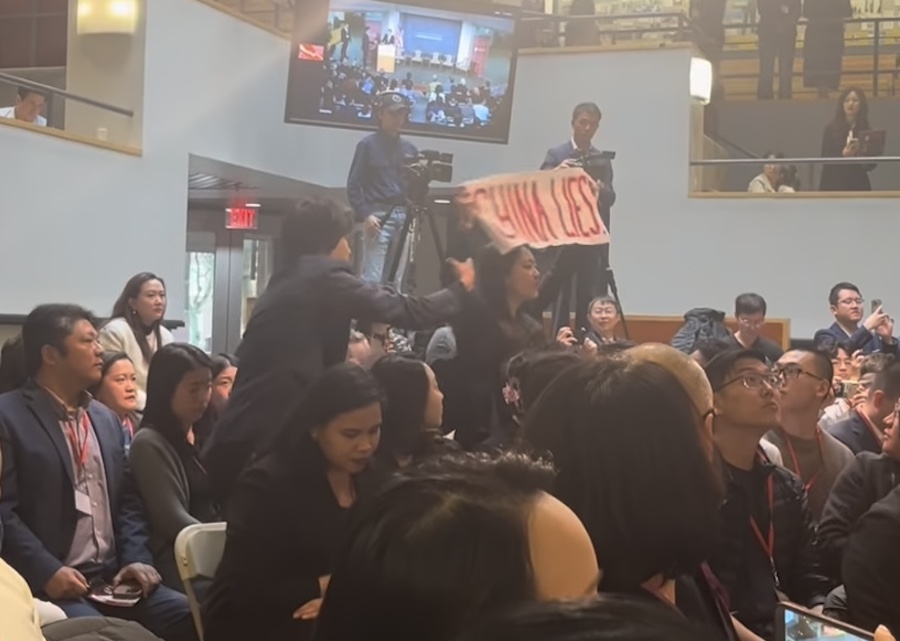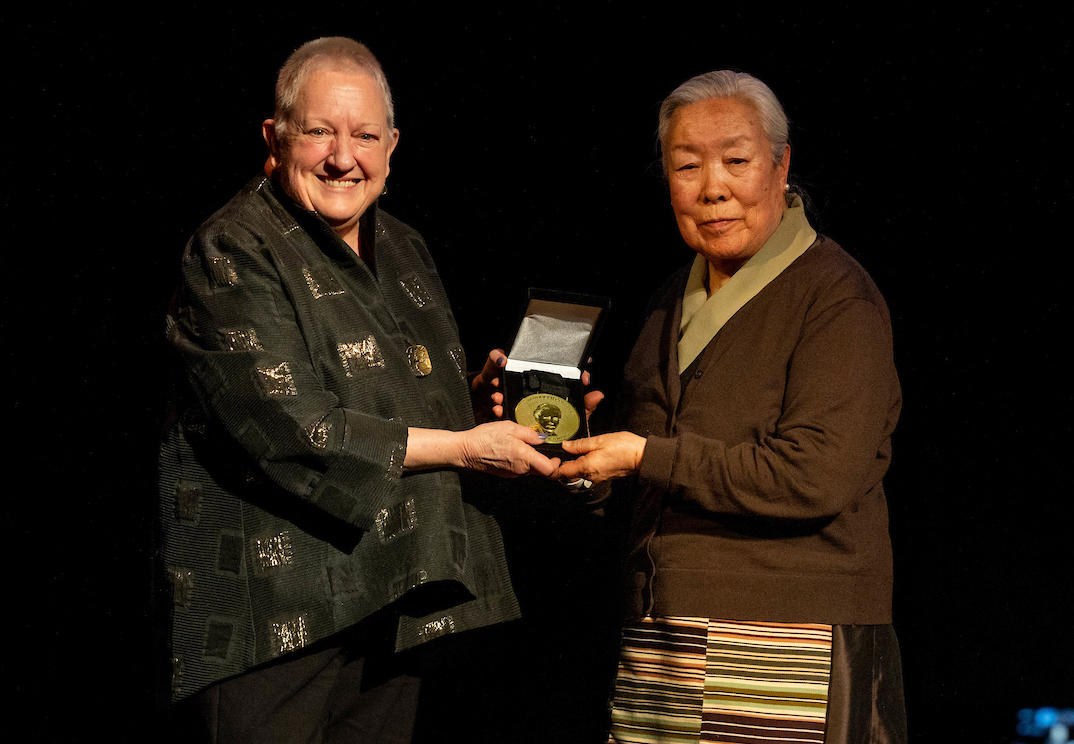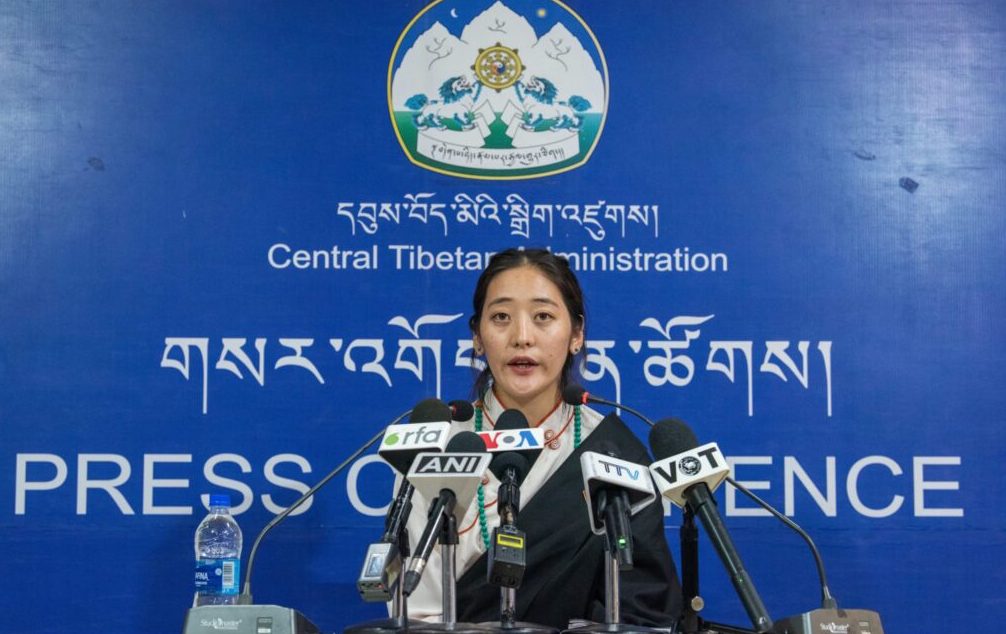By Choekyi Lhamo
DHARAMSHALA, July 1: Noted Hollywood actor and the chairman of the International Campaign for Tibet (ICT), Richard Gere spoke before a Senate subcommittee on Tuesday about the impact of Chinese censorship on US economic interests, and especially on Tibet. The social activist and long time friend of Tibet was among the four witnesses called for the hearing on “Censorship as Non-Tariff Barrier to Trade” held by the Senate Finance Committee on International Trade, Customs, and Global Competitiveness.
The subcommittee’s chairman, John Cornyn, and member Bob Casey led the hearing. Richard Gere emphasized that China’s censorship works through its refusal to give American journalists, businesses and citizens the same degree of access to China that Chinese counterparts enjoy in the US.
Noting that America has supported the Tibetan people and its Buddhist culture, he said, “The Chinese government highly restricts access to Tibet for Americans—including journalist and politicians—like no other areas of China, while Chinese citizens face no such limitations when they visit the US. They go where they want.”
Gere lauded the Congress for passing the Reciprocal Access to Tibet Act in 2018 which requires the Statement Department to sanction Chinese officials directly responsible for keeping American citizens out of Tibet. He hopes that RATA will be implemented soon as it is mandated by the law.
As an avid supporter of Tibet, he said that he is unsure whether his activism has affected his career in Hollywood but admitted that “the combination of Chinese censorship, coupled with American film studios’ desire to access China’s market, can lead to self-censorship and overlooking social issues that great American films once addressed.” Gere added that people in the Chinese film industry have told him that they can’t work with him because it would end their careers.
He also spoke about China’s strategic control over preventing world leaders from meeting the Dalai Lama. Tibetan Policy and Support Act (TPSA), among other provisions, will make it official US policy that only Tibetan Buddhists can decide on the next successor of the Dalai Lama and sanctioning counter actions by China. Observers say China will appoint their own Dalai Lama to claim legitimacy over the issue. Gere requested the members of the subcommittee to co-sponsor the TPSA and raise it with Senate leadership.
Other witnesses at the hearing were Beth Baltzan from Open Markets Institute, Nigel Cory, Associate director of trade policy, Information Technology and Innovation Foundation, and Clete R. Willems from Akin Gump Straus Hauer and Feld LLP.
Nigel Cory warned the Senate that Chinese censorship not only helps the CCP to stay in power but also damage the US economy, “While the primary motivation for censorship in China is regime stability, it gets the economic benefit . . . And the economic benefit to China and the cost to the United States is already significant in that over the last 20 years, a host of US industries and firms have lost hundreds of billions of dollars in revenue.”











4 Responses
Richard is a brilliant actor and more importantly a modest and concerned person. Of course his career was damaged by his support for a free Tibet. Even the village idiot can figure this out when his body of work is banned in China.
Europe accommodated and appeased Hitler out of fear of another world war. It just emboldened him. We accommodate and appease Xi out of money. As you can see it has emboldened him.
Doing the same thing expecting different results is the definition of insanity.
Canadians going to China as American proxies? You have evidence?
Familiar with Meltdown in Tibet? Where do you think those satellite images originated? While at it, look into all the Canadian mining companies doing business in Tibet. Canada as the 2nd biggest country by landmass has enough natural resources of it’s own without having to traipse halfway across the world.
Wake up and smell the roses and work with the CTA to figure out the best path forward for the vast majority of Tibetans who live in Tibet. Using Dharmashala as a steppingstone to the west has it’s place, but there are 6 million Tibetans in Tibet and they suffer the consequences.
Restricted access to Americans in Tibet over the ages has resulted in an influx of Canadians going to the region as proxies. However their pronunciation of certain words give them away. As the Dalai Lama mentioned, Indian’s are also Tibetan chelas.
The Chinese diaspora across the globe over the past few centuries is rather vast and not just limited to SE Asia. There is a common language as well, although likely local dialect and idiom usage gives them away on closer inspection.
It is interesting to compare the Tibet situation to either Taiwan or Mongolia. What is in common and what makes the differences? Censorship results in other conduits–both previously tested and untested. The 20th century saw the end to global imperialism and gave us not one but two World Wars. What have we learned as a result in the 21st century? Different approaches have been taken across the globe to coming out of feudalism–some seem to work better than others and probably dependent on local scenario and culture.